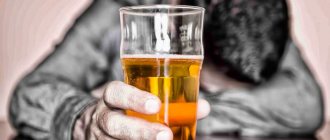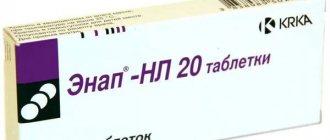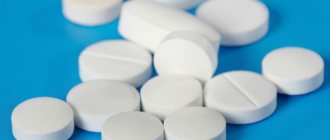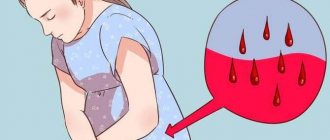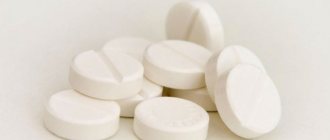The best treatment for depression is comprehensive. A specialist (psychotherapist or psychiatrist) creates an individual treatment plan and, based on the examination, selects only those components that correspond to the indications and contraindications. Typically, these are antidepressants combined with some other medications for depression, stress, and anxiety. The patient takes prescribed medications for depression until there is a therapeutic effect or stable remission. Treatment of depressive conditions takes quite a long time. As a rule, therapy lasts from 1.5 to 7 months.
Action of phenibut
It has several different effects on the nervous system and mental state:
- Reducing anxiety and fear.
- Normalization of sleep, making it easier to fall asleep.
- Nootropic effect: by improving the metabolism of nerve cells, attention, memory and reaction speed are improved.
- Relieves symptoms of dizziness, stuttering, enuresis and tics in children.
- Anticonvulsant action.
- Analgesic effect.
- Improves endurance.
The mechanism of action is complex and is associated with a direct effect on GABA receptors, which leads to increased inhibition processes caused by gamma-aminobutyric acid.
Also, by improving blood microcirculation in the small vessels of the brain and reducing the processes of lipid peroxidation, it helps restore normal metabolism of nerve cells (neurons). Thus, it combines the effect of a tranquilizer (sedative) and a nootropic-vascular drug.
How to take Phenibut for children
Phenibut has proven to be a drug with low toxicity and good tolerability, so it is prescribed for the treatment of neurotic and anxiety disorders in children and the elderly.
Phenibut for children (from 8 years old) is used in a dosage of 20 – 100 mg/day for a course of 2-4 weeks. This duration of therapy is associated with the child’s possible psychological adaptation to the medicine. The drug is prescribed to young children (less than 8 years old) by a doctor in exceptional cases. Only the doctor can decide on this. Phenibut is not recommended for infants, since the medication can have multidirectional effects on the child, which cannot be predicted in advance. Doctors advise refraining from using Phenibut for at least two years.
Children aged 8 to 14 years should take no more than 250 mg per day
Also, if necessary, it is better to give the powder, which is prepared by a pharmacist in a pharmacy, since dividing Phenibut 250 or 100 mg into correct, “children’s” doses is difficult.
| Age | Dose size per day |
| Less than 8 years | From 20 to 150 mg |
| 8-14 years | No more than 250 mg |
| Over 14 years old | Standard adult doses possible |
Indications for use
Phenibut is prescribed for both disease and non-painful conditions.
- Stress, overwork, lack of sleep, preparation for physical and mental stress and operations.
- Asthenia (asthenic syndrome, neurasthenia, VSD, astheno-neurotic state).
- Tension headache.
- Anxiety disorders: panic attacks, generalized anxiety disorder, phobias (fears).
- Neuroses, neurosis-like states.
- Personality disorders.
- Consequences of organic damage to the nervous system.
- Withdrawal state due to alcohol, drug addiction, smoking.
- Dizziness, Meniere's disease, motion sickness.
- Insomnia.
- Psychosomatic diseases.
- In children: stuttering, tics, enuresis, aggressiveness, developmental delay.
A prerequisite for taking phenibut is a doctor's prescription. Self-use is prohibited!
Phenibut during pregnancy and lactation
As for taking Phenibut during pregnancy and breastfeeding, doctors come to a consensus - the drug is strictly prohibited in the first trimester, since the formation of all major organs and systems occurs in the fetus. There have been no clinically reliable studies on exactly how GABA derivatives affect the unborn baby. It is also unknown whether the active ingredient passes into breast milk. Therefore, if Phenibut is indicated for use, it is recommended to switch to artificial feeding.
As for later stages of pregnancy, experts allow use with caution when the likely benefit to the mother significantly outweighs the possible risk to the fetus.
Phenibut addiction
With prolonged, uncontrolled use of phenibut, mental and physical dependence may develop. This may require special treatment from a psychiatrist-narcologist and subsequent rehabilitation. As a rule, cases of dependence on phenibut were observed in persons dependent on psychoactive substances who had a long history of drug addiction and who switched from using the drug to phenibut. The development of primary dependence on phenibut only after long-term use is extremely rare.
How to take Phenibut
Phenibut is prescribed in therapeutic courses lasting from 2-3 to 4-6 weeks, depending on the disease and the speed of normalization of the condition. Therapy can be repeated after 2-4 weeks. This time interval is necessary so as not to cause addiction to the drug, which supplies the brain with the necessary metabolites, and it (the brain) stops producing these substances on its own in the required quantities.
Phenibut is started at full therapeutic dosage. But they stop the course of treatment gradually, reducing the dosage over 1-2 weeks.
With long-term use of Phenibut, it is recommended to take a general blood test once a week to identify possible eosinophilia and a blood test for the activity of AST and ALT.
When using Phenibut with other psychotropic drugs, it is necessary to reduce the dosage of both medications taken.
If a person gets motion sickness in transport, then Phenibut should be taken 20-30 minutes before the trip in a single dose of 250-500 mg (1-2 tablets). Only in this case will it be effective.
Take Phenibut tablets with plenty of water.
Phenibut should only be taken after meals, as severe irritation of the stomach lining may occur. The tablet must be swallowed whole, without biting or chewing, or crushing in any other way. The tablets should be taken with plenty of water.
Standard dosage of Phenibut for adults: 250 – 500 mg (1-2 tablets) 3 times a day. If necessary, the dosage is increased to 750 mg (3 tablets) 3 times a day.
For children under 8 years of age, Phenibut is prescribed 20–150 mg 3 times/day, and for children aged 8–14 years—250 mg 3 times/day.
The maximum permissible dosage of Phenibut is: 750 mg (3 tablets) for adults, 500 mg (2 tablets) for elderly people over 65 years of age, 300 mg for children 8 – 14 years of age and 150 mg for children under 8 years of age.
The duration of use of Phenibut is determined by the attending physician.
Phenibut for adults: contraindications and indications
The medication is prescribed to patients:
- with a decrease in intellectual and emotional activity;
- memory disorders, unreasonable anxiety;
- symptoms of asthenia, sleep problems, including nightmares;
- decreased concentration, Meniere's syndrome;
- alcohol dependence and the consequences of withdrawal;
- vestibular dysfunction caused by injuries, infections, and vascular diseases.
Phenibut is recommended as a complex therapy for cervical, thoracic osteochondrosis, and menopausal disorders in women. Can be used to prevent seasickness, stress that occurs during the preoperative period and before diagnosis, causing discomfort.
The annotation lists the following contraindications for therapeutic procedures:
- period of pregnancy and breastfeeding;
- presence of acute renal failure;
- children's age - up to 8 years.
Particular care is required when treating patients with gastrointestinal diseases, erosions, and ulcers. For patients, the dosage is reduced, the rule is associated with the effect of the drug, which can cause irritation of the mucous membranes of the digestive tract.
Tranquilizers for depression and neurosis
Kinds:
- sleeping pills;
- sedatives;
- muscle relaxants.
In the first case, there is a significant reduction in anxiety, the quality of sleep improves and the duration of sleep increases. Doctors do not recommend taking sleeping pills for a long time or independently extending the period of use prescribed by a specialist, since drugs in this group can cause drug dependence. Because of this feature, sleeping pills are popular among pharmacy drug addicts.
Sedatives have a positive effect on the central nervous system; they can be either herbal or synthetic and have a rather mild effect on the central nervous system. They help restore balance between the excitation and inhibition systems, enable a person to react more calmly to stressful situations and eliminate sleep problems.
Muscle relaxants are medications that reduce the tone of the skeletal muscles and reduce motor activity. They block H-cholinergic receptors and stop the supply of impulses to the muscles, due to which they stop contracting.
Tranquilizers are used for depression and panic attacks, sleep problems, as well as for:
- behavioral and mental disorders;
- neuroses;
- psychosis;
- personality disorders;
- causeless fears;
- schizophrenia;
- when relieving abstinence from alcohol and drug addiction;
- eczema;
- anorexia;
- bulimia;
- arrhythmias;
- hypertension.
In some cases, these psychotropic drugs are prescribed to children.
Medicines of this group should not be used by people with alcohol or drug intoxication. Doctors do not recommend medications for the treatment of neuroses and depression and for work involving increased concentration, including for drivers. As with the treatment of depression with antidepressants, to reduce the risk of withdrawal symptoms when stopping the medication, it is necessary to reduce the dosage gradually. Your doctor should tell you about this. In addition, a long course of its use is fraught with the development of drug dependence, so the course is divided into short periods. Pregnant and lactating women should not use tranquilizers.
The drugs help cope with stress, make it easier to endure traumatic situations, eliminate fears, phobias, and panic attacks without suppressing cognitive functions. Often tranquilizers help eliminate sleep problems, frequent awakenings, insomnia at night, and drowsiness during the day. In the treatment of psychosis, these medications are used as part of complex therapy that help eliminate the side effects of antipsychotics. But the drugs themselves have various side effects, including muscle weakness, lethargy, decreased concentration and reactions, libido, memory impairment, drop in blood pressure, and nausea.
Tranquilizers are quite dangerous drugs, some of them are classified as pharmaceutical drugs, since if the duration of treatment and dosage are violated, psychophysical dependence can occur. They are also known to be used for recreational purposes. If you notice that your loved one has been taking the same medication for a long time, you should seek help from the Center for Healthy Youth. We work throughout Russia. Application is free and anonymous.
Anonymous 24 hours a day Activity is licensed Patient accompaniment
Full range of narcology services:
- tests
- drug testing
- detox
- encoding
- psychiatry
- binder
- withdrawal symptoms
8+7
Effective drugs for depression
Phenazepam
This is perhaps the most common drug in addiction medicine and psychiatry.
However, it is popular not only because it is highly effective in the treatment of anxiety disorders, but also because it is a dangerous pharmaceutical drug that causes addiction. That is why the duration of the course of treatment and dosage are controlled by the doctor. You cannot buy Phenazepam at a pharmacy without a doctor's prescription. This is a benzodiazepine that affects the central nervous system and is a potent drug. Today, the tranquilizer is used less and less, as it has a fairly large list of side effects, including drug addiction. It has a sedative and hypnotic effect.
Afobazole
An innovative modern drug is used for depression and neurosis. It eliminates anxiety, restlessness, relieves tension and stress, does not cause drowsiness, and has a minimum of side effects. The medication is a neuroprotector, protects nerve cells, stabilizes GABA receptors.
Mexidol
The purpose of antioxidants is to protect the body from dangerous substances that damage cells and adversely affect human health. The drug is prescribed to patients after a head injury, in the presence of abnormalities in the cerebral circulation, or stress. Mexidol is used in the treatment of encephalopathy, ischemic heart disease and VSD.
Magnesium
Our body cannot function normally without magnesium. This substance is involved not only in metabolic processes, but also affects the functioning of the central nervous system. That is why it is necessary to compensate for the existing magnesium deficiency in cases of depressive disorders.
Quetiapine
The drug affects serotonin receptors to a greater extent than dopamine receptors. Therefore, for depression it is prescribed quite rarely, or in minimal doses. Most often used for more severe illnesses, dementia, Alzheimer's or Parkinson's disease. Contraindications are oncology, hypotension, heart attack, diseases of the cardiovascular system and liver.
Amitriptyline
The drug increases the concentration of norepinephrine and serotonin and inhibits their reuptake. It is used in the presence of psycho-emotional disorders, psychosis, anxiety, insomnia, depression. It is not recommended to take if you have binge drinking and alcoholism, gastrointestinal diseases, or pregnancy.
Atarax
Inhibits the work of the central nervous system, is prescribed for mental disorders, psychomotor agitation, nervousness, anxiety, irritability. Do not use during pregnancy or individual intolerance to the components of the drug.
Phenibut and alcohol
As follows from the instructions, Phenibut is used in the complex treatment of alcohol withdrawal syndrome to relieve anxiety, restlessness and other unpleasant psychological experiences and symptoms. But this does not mean that simultaneous use of the drug and alcoholic beverages is possible.
The fact is that it is impossible to predict the body’s reaction to such a combination. Phenibut in combination with alcohol can cause rapid and severe intoxication or, on the contrary, help not to get drunk and maintain clarity of mind.
Antidepressants
Should I take antidepressants for severe depression? Many people believe that such drugs are addictive. If previously drugs that could cause addiction and drug dependence were used in psychotherapy, today new generation drugs are used that affect the human body and psyche more gently and sparingly.
Among the reasons for mistrust in the use of antidepressants for depression is the fact that if the course of treatment is interrupted, a person may feel worse. If withdrawal symptoms occur, this indicates incorrect discontinuation of the prescribed drug. You should not perceive this reaction of the body as dependence on pills.
If you stop the artificial synthesis of brain neurotransmitters, their quantity in the human body will drop sharply. Patients feel that their depression or anxiety disorder is returning as anxiety increases. Any changes in your condition should be reported to your doctor. The specialist knows how to smoothly discontinue the prescribed medication. In combination with psychotherapy, pharmacotherapy works well, giving long-term results.
There are several groups of medications for anxiety and depression.
Tricyclic
The first group includes medications that have a three-cyclic structure; they are not sedatives and prevent the immediate breakdown of neurotransmitters (serotonin and norepinephrine). They do not disappear from the nerve endings, their synthesis increases, as does the amount of serotonin. These medications have a number of contraindications; they are not recommended for people who have kidney and liver diseases, glaucoma, atherosclerosis, or use of narcotic substances.
Monoamine oxidase inhibitors (MAOIs)
MAOIs are monoamine neurotransmitters that regulate our emotions, as well as a number of processes in the brain: attention, cognitive functions, memory, arousal. Due to the inhibition of leasing, the amount of monoamines increases and their accumulation in nerve endings. Some groups of these drugs are contraindicated for pregnant women and people with work that requires concentration, as well as for hypertensive patients.
Selective serotonin uptake inhibitors (SSRIs)
The third group of drugs for the treatment of depression includes selective serotonin uptake inhibitors.
Medicines are prescribed to replenish “happiness hormones”. Do not think that this happens quickly; the process of restoration of neurotransmitters is gradual. SSRIs have one important advantage - when the drugs are abruptly stopped, there is no withdrawal syndrome. Contraindications to their use include diseases of the genitourinary system, as well as alcoholism and drug addiction. If a person has developed alcoholism due to depression, he should not take antidepressants, since alcohol increases the side effects of the medication for depression. Symptoms of the disorder may increase significantly and the condition may worsen. Quite often, psychological reasons cause the development of alcohol dependence; the risk of depression in alcoholics is several times higher than in healthy people. The first group of anti-depression drugs is especially dangerous to combine with ethanol, as this leads to a sharp increase in blood pressure.
Which antidepressant is best for anxiety and depression? Your doctor will answer this question; the choice of medications should always take into account the individual characteristics of the patient’s body.
Do you want to know about the cost of services?
8 call our specialist
